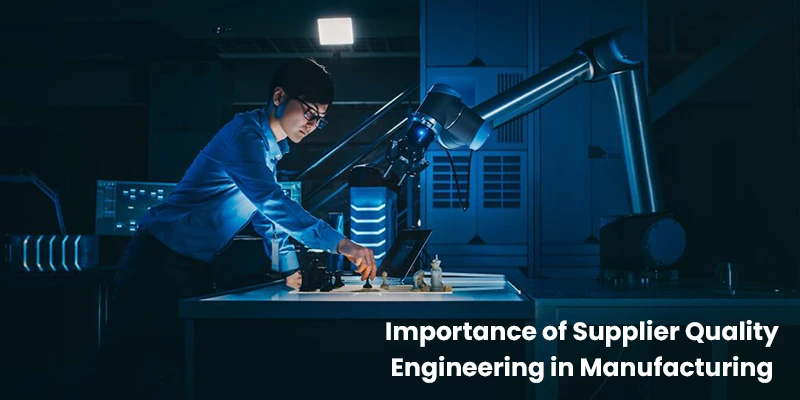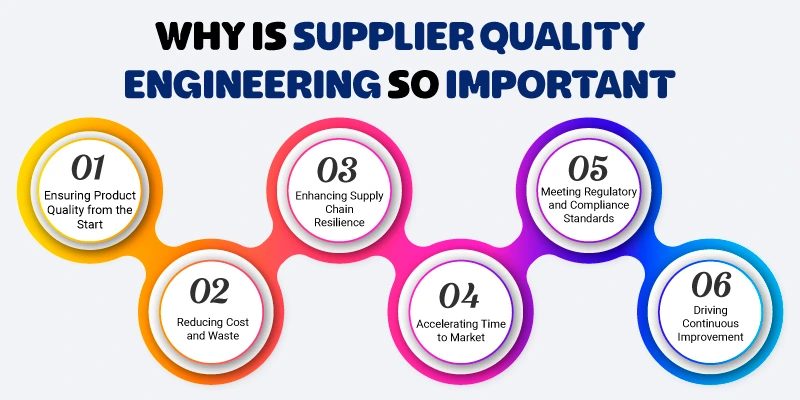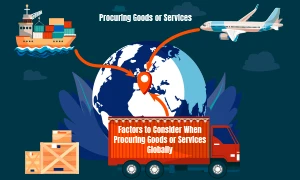
Companies are under constant pressure to deliver defect-free products quickly, efficiently, and at scale. But no matter how advanced the production technology or skilled the workforce, the quality of the final product can be compromised by a single substandard component. Positioned at the intersection of procurement, engineering, and quality assurance, Supplier Quality Engineering (SQE) ensures that materials and components from external vendors meet all specifications before they reach the production floor.
In this blog, we’ll break down why Supplier Quality Engineering is essential, the key areas it covers, and how it directly contributes to manufacturing success.
What Is Supplier Quality Engineering?
Supplier Quality Engineering is a specialized discipline within quality management that focuses on ensuring suppliers deliver products that meet required standards, consistently and reliably. SQEs work closely with suppliers to evaluate their processes, audit their capabilities, implement quality standards, and continuously improve their performance. Their role serves as a bridge between procurement, engineering, and manufacturing.
Why Is Supplier Quality Engineering So Important?
Let’s explore the key reasons why Supplier Quality Engineering is indispensable in modern manufacturing:

1. Ensuring Product Quality from the Start
If a manufacturing company uses subpar materials or components, no amount of internal quality checks can fully salvage the end product. SQEs help prevent quality issues at the source by vetting and managing suppliers to ensure they meet stringent quality standards. This proactive approach minimizes the risk of defects and production delays.
2. Reducing Cost and Waste
Poor supplier quality leads to defective parts, rework, recalls, and waste—all of which drive up costs. By implementing strong supplier quality controls, companies can significantly reduce non-conformance costs and improve overall profitability. An effective SQE function helps maintain lean operations and lowers the total cost of ownership.
In addition to optimizing supplier quality, there are several strategies to reduce overall manufacturing costs. Discover more on Effective Ways to Reduce Manufacturing Costs.
3. Enhancing Supply Chain Resilience
Reliable suppliers contribute to a resilient supply chain. SQEs help identify risks and implement corrective actions early, reducing the likelihood of disruptions due to supplier failures. With globalization, supply chains have grown longer and more complex, making the oversight provided by SQEs more essential than ever.
4. Accelerating Time to Market
With competitive pressures to innovate and launch products quickly, manufacturers can’t afford delays caused by supplier quality issues. Supplier Quality Engineers streamline the qualification process, reduce back-and-forth on specifications, and ensure that production ramp-up goes smoothly—helping bring products to market faster.
5. Meeting Regulatory and Compliance Standards
Industries such as automotive, aerospace, and medical devices are subject to strict regulatory requirements. SQEs ensure that suppliers comply with relevant standards (e.g., ISO 9001, IATF 16949, AS9100, FDA regulations), helping companies avoid legal trouble and maintain certifications.
6. Driving Continuous Improvement
SQEs don’t just enforce standards—they collaborate with suppliers to improve their processes. Through tools like Six Sigma, root cause analysis, and corrective/preventive action (CAPA) plans, SQEs help elevate supplier capabilities over time. This partnership-oriented approach fosters innovation, efficiency, and long-term value.
Key Responsibilities of a Supplier Quality Engineer
These responsibilities typically include the following:
- Supplier audits and evaluations
- PPAP (Production Part Approval Process) and FAI (First Article Inspection)
- Corrective and preventive action (CAPA) implementation
- Process capability analysis
- Non-conformance tracking and resolution
- Supplier scorecard management
- Collaboration on design for manufacturability and quality
What Areas Does Supplier Quality Engineering Cover?
Supplier Quality Engineering spans a broad range of responsibilities that support the entire lifecycle of supplier engagement. These areas include:

1. Supplier Selection and Qualification
SQEs participate in evaluating potential suppliers through audits, capability assessments, and technical reviews to ensure alignment with quality and business requirements.
2. Quality Planning and Risk Management
They collaborate on quality plans, risk analysis (e.g., FMEA), and design reviews to anticipate and mitigate potential issues before production begins.
3. Incoming Material Inspection
SQEs define criteria and oversee inspection processes for incoming materials and parts to ensure conformity with specifications.
4. Process Validation and Part Approval
They manage Production Part Approval Process (PPAP), First Article Inspections (FAI), and process capability studies to validate that suppliers can produce parts consistently.
5. Non-Conformance Management
When issues arise, SQEs lead root cause analysis, issue corrective and preventive actions (CAPA), and monitor their effectiveness to avoid repeat problems.
6. Supplier Audits and Performance Monitoring
SQEs conduct regular audits and track performance using scorecards and KPIs to ensure ongoing compliance and continuous improvement.
7. Regulatory Compliance Support
They help ensure supplier processes and materials meet industry-specific regulations and standards, such as ISO, IATF, or FDA requirements.
8. Continuous Improvement Initiatives
SQEs engage suppliers in lean manufacturing, Six Sigma, and other improvement initiatives to drive better quality, efficiency, and cost savings.
What Are the Benefits of Outsourcing Supplier Quality Engineer Services?
Outsourcing Supplier Quality Engineer (SQE) services can offer significant advantages for manufacturers aiming to enhance quality without the overhead of expanding internal teams. Here are some of the key benefits:

1. Cost Efficiency
Hiring full-time SQEs can be costly, especially for short-term projects or fluctuating production volumes. Outsourcing provides access to expert talent without the long-term financial commitment.
2. Access to Specialized Expertise
External SQEs often bring deep experience across multiple industries and suppliers, offering valuable insights and best practices that may not exist in-house.
Choosing the right sourcing strategy is just as important as maintaining supplier quality—learn more about the pros and cons of Local Sourcing vs Global Sourcing.
3. Scalability and Flexibility
Outsourcing allows companies to scale quality support up or down based on demand, new product launches, or supplier issues—without delays in hiring or training.
4. Faster Supplier Audits and Approvals
With dedicated third-party SQEs, audits, inspections, and qualification processes can be conducted more quickly and frequently, reducing delays in onboarding new suppliers.
5. Improved Global Reach
Many outsourced SQEs operate internationally, making it easier to manage supplier quality in multiple regions and time zones without needing a local internal team.
When sourcing globally, it’s essential to consider various factors beyond just cost. Check out our guide on Factors to Consider When Procuring Goods or Services Globally for more insights.
6. Focus on Core Competencies
By outsourcing quality oversight, internal teams can concentrate on innovation, production, and strategic growth while still maintaining control over supplier performance.
Strengthen Your Supply Chain with SIXM
As manufacturing continues to evolve, the role of the Supplier Quality Engineer will only grow in importance. Businesses that prioritize supplier quality today will be the ones leading tomorrow’s markets, with fewer disruptions, superior products, and stronger reputations.
At SIXM, we understand the critical role of a resilient, high-performing supply chain. That’s why we assist businesses in unlocking the full potential of their supplier networks through expert quality engineering services. To streamline your supply chain and ensure the highest quality, consider leveraging our Sourcing & Procurement Engineering Services.
Partner with SIXM to strengthen your supply chain, reduce risks, and elevate your manufacturing outcomes starting with your suppliers.

